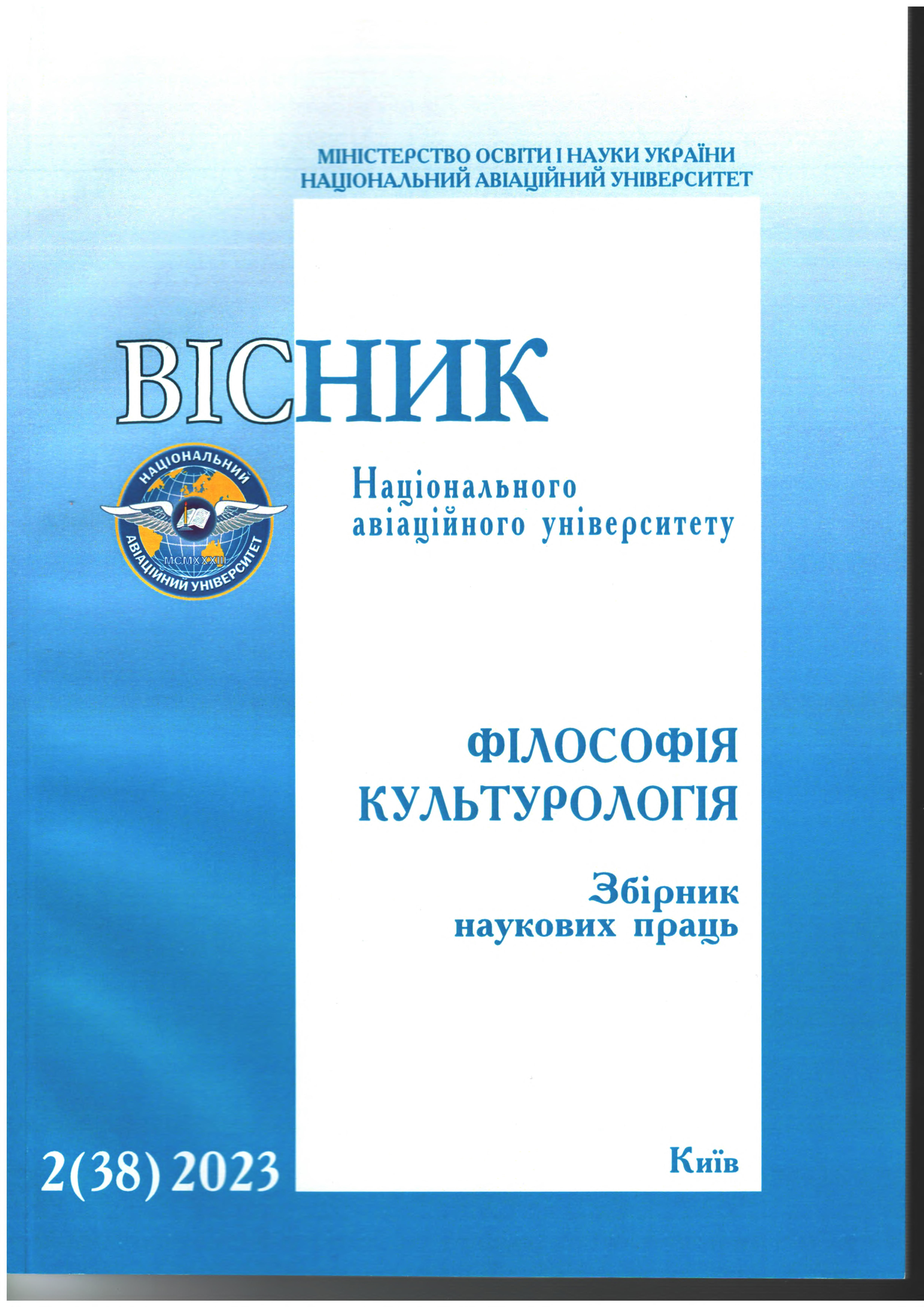EDUCATION IN THE DIGITAL ERA: THE ROLE OF LANGUAGE TRANSFORMATION IN COMMUNICATION
DOI:
https://doi.org/10.18372/2412-2157.2.18122Keywords:
language of communication, digital era, values, digitalization, information technologies, personality, educationAbstract
Introduction. Sociocultural transformations of the language of modern communication encourage new searches for solutions to political, ecological, cultural, economic, and many other contradictions of the modern world. Since all these processes are related to human existence, first of all, it is necessary to consider the place and role of man in the conditions of the digital era. Secondly, consider the impact of the transformation of the language of communication on education as an environment of personality formation. The aim and tasks. This study aims to identify the influence of the transformational processes of the language of communication on changes in the modern educational sphere of man to respond to the challenges of the new millennium. The basis for achieving the goal will be a comparative analysis of various views of representatives of different fields of knowledge on this problem. Research methods are analytical-descriptive and socio-cultural methods, principles of historicism, unity of historical and logical. The comparative approach helps to compare the predictions and premonitions of researchers regarding the new conditions for the implementation of human education and its further existence. Research results. At the current stage of human development, there is a demand for education to train a new type of person who would be able to adapt and actively act in the fragile world of the new era. From the four educational angles (science, art, religion, philosophy) the most complete picture of the world is formed for every educated person. In the digital era, network forms of communication meet the needs and expectations of people and also reflect the dominant cultural meanings that have been created in network communities and spread in modern society. Since the ethics of responsibility has not yet become the basis of the era of digitalization, we mostly observe the replacement of freedom with arbitrariness, starting with the education of man and ending with other spheres of his existence. Humanity cannot yet realize all the risks and limits of its activities in the digital space. Discussion. The ХХІ century has acquired all the signs of destabilization of social life. Environmental problems related not only to the consequences of human activity, but also to the increased activity of seismic processes on the planet, push to find new forms of coexistence. The surge of current military conflicts regarding the redistribution of the territories, economic wars for product sales markets, etc. has been preceded by a decrease in the level of education, or
its complete absence, and the dominance of market values. The transition to a full-fledged creative society of the digital era is possible precisely through upbringing and education. Without changing internally, humans are trying to change the external forms of education and upbringing of the next generation. As a result, imperfect and irrelevant forms of the educational process are copied. An example can be an educational experiment in China, which increasingly resembles the creation of a "digital concentration camp". Conclusions. Language is one of the means of implementing the communication behavior of an individual, a prism through which a person sees the world and develops his/ her consciousness. Therefore, it is extremely important to fundamentally revise the existing forms of education and training in the educational field of humanity to help form the communicative personality of the new era. So far, we are observing the destruction of old forms in man’s educational process, when the world is perceived fragmentarily, traditions weakly regulate human behavior. In which direction the language of communication will be directed, and by what values it will be guided, that direction society with all its institutional forms will develop. For a positive direction of personal development, modern society needs to develop new legal norms and laws so that human freedom does not turn into arbitrariness and further negative consequences do not lead to the activation of the mechanism of selfdestruction of humanity in wars of various types.
References
Habermas J. (1987) Teorien_om_den_kommunikative_handlen [Електронний ресурс] – Режим доступу: https://dkwiki.dk/ OrdBog/Teorien_om_den_kommunikative_handlen
Baudrillard J. La société de consommation: ses mythes, ses structures. – S.G.P.P., 1990. – Р. 318.
Bettelheim B. A Home for the Heart. [Електронний ресурс] –Режим доступу: https://web.archive.org/web/20210311201337
/http://opentextnn.ru/old/man/index.html@id=4019
Абисова М. А. Вплив неформальної комунікації на розвиток проектного мислення в контексті роботи над соціальним проектом. Вісник Національного авіаційного університету. Серія: Філософія. Культурологія: Збірник наукових праць. № (1) 37. 2023. С. 21-25. DOI: https://doi.org/10.18372/2412-2157.37. 17569
Антіпова О. П. Соціокультурний простір інформаційної ери: взаємовплив природної та штучної мов : монографія. Дніпропетровськ : ДДУВС, 2013. 179 с.
Дротянко Л. Г. Етнокультурний фактор міжцивілізаційних відносин ХХ-ХХІ століть. Вісник Національного авіаційного університету. Серія: Філософія. Культурологія: Збірник наукових праць. № (2) 36. 2022. С. 5-10. DOI: https://doi.org/ 10.18372/ 2412-2157.36.16962
Орденов С. С. Політико-правовий вимір міжцивілізаційних викликів глобалізованого світу. Вісник Національного авіаційного
університету. Серія: Філософія. Культурологія: Збірник наукових праць. № (2) 36. 2022. С. 50-57. DOI: https://doi.org/10.18372/2412-2157.36.16971
Павлова О. О., Єрьоменко І. В. Соціокультурні особливості комунікативної особистості. Педагогіка формування творчої
особистості у вищій і загальноосвітній школах. Збірник наукових праць. № 37, Т.2. Запоріжжя.: КПУ, 2020. С. 137-142.
Сухова Н. М. Духовність та гуманізм людини ХХІ століття. Вісник Національного авіаційного університету. Серія:
Філософія. Культурологія: Збірник наукових праць. № (2) 22. 2015. С. 62-67. DOI: https://doi.org/10.18372/2412-2157.22.12392
Хамітов Н. Комунікація. Філософський енциклопедичний словник. (гол. ред. В. І. Шинкарук). К.: «Абрис», 2002. 750 с.

